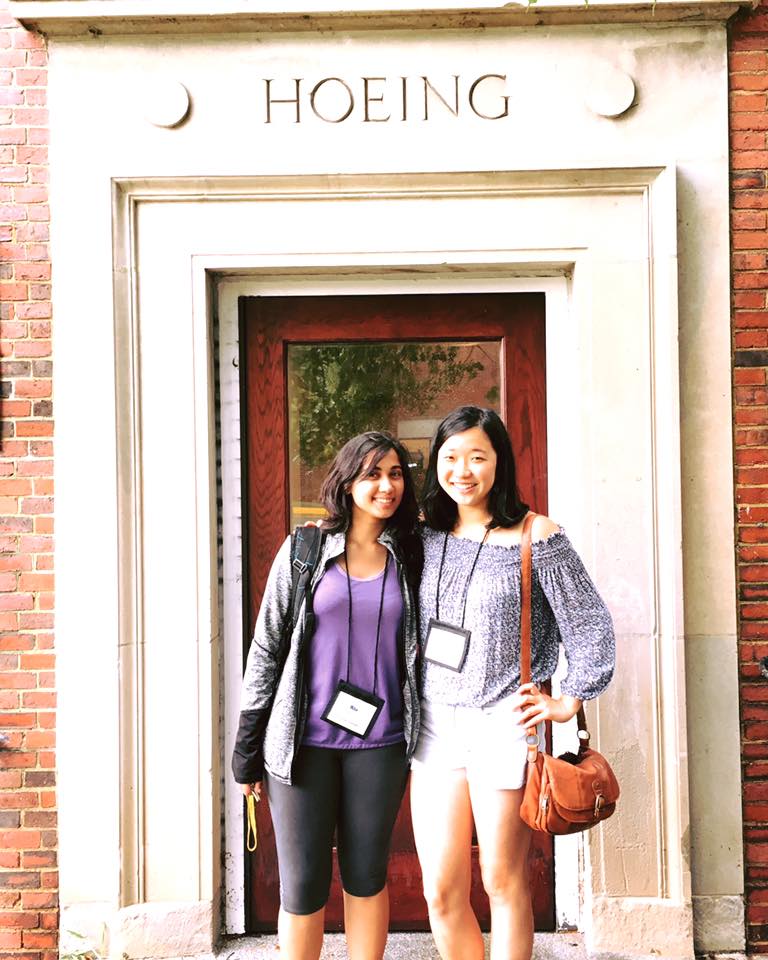“What is a Resident Advisor?”
Many of my freshman residents asked me this question on move-in day. When I first encountered this question, I paused and thought about my role in my hall and my recent Resident Advisor training experience.
A Resident Advisor (RA) is a student employee of the Office for Residential Life & Housing Services (Res Life) who assists with regulations, programming, counseling, and conflict resolution in the residence halls. As an RA, I am responsible for helping my freshman residents transition into college life safely and documenting any incidents on my hall. This job puts a lot of responsibility on my shoulders and really tests my time management skills.
Due to these responsibilities, Res Life prepares a ten-day training for all the RAs each academic year. I went through the training for the first time this August, and I have learned tons of practical knowledge for both my job and my personal life. I’ll share three nuggets of wisdom:

1. When conflicts arise, be proactive and face them instead of running away.
As an RA, if I sense something unusual has happened with a student in my hall (such as a student continuously skipping classes, acting weirdly around hall mates, or looking sick), it’s my responsibility to check on that student and ask how is he/she doing. If there’s roommate or hall mate conflicts, I need to set up a mediation session and talk to my direct supervisor. I cannot pretend I didn’t see or hear anything if something happened to my residents. It’s my job to create an inclusive and harmonious community in my building, which means I have to be observant and proactive in resolving issues. This lesson also applies to life in general: whenever there’s an issue, such as a career obstacle or family issue, it’s always better to face it directly and solve it with grace.
2. Being a good bystander is important on a college campus.
This year, Rochester put lots of effort in educating incoming students on sexual misconduct and consent. All freshmen participated in an Orientation event called “Red Light Green Light,” which educated students about campus and city resources, such as the University Counseling Center, the CARE Network, and the Restore sexual assault hotline. Freshman RAs like me and my co-RA Ria also held a debrief meeting about this topic. Our residents sat in a circle and talked about their feelings and what they had learned during the event. The event taught me that I cannot assume someone else will do something about sexual misconduct; I need to distract and directly intervene in the situation. It’s on us to stop sexual assault on campus. (Check Rochester’s SA Government’s “It’s On Us” campaign video.)
3. It’s important to be a good team player.
RAs don’t work alone; Res Life created a whole chain of support systems to help RAs do their job. RAs are supervised by GHRs (Graduate Head Residents), GHRs are supervised by RDs (Resident Directors), etc. Also, RAs on the same building or nearby buildings work together as a staff, so we share duty shifts and have weekly staff meeting. Older RAs will answer younger RAs’ questions and RAs can always express our concerns to GHRs or RDs. Only when we work as a team do we help build a better community.
I am beyond excited to get to know my new residents more and help them transition into college life. I’ve found it’s fulfilling and meaningful to make a positive impact on someone else’s life. I am also grateful to have received such extensive RA training before school started, because I not only feel more prepared for the job, but I’ll also be able to reflect on my own life and apply some tips I’ve learned to live a more productive life!

Meliora!

